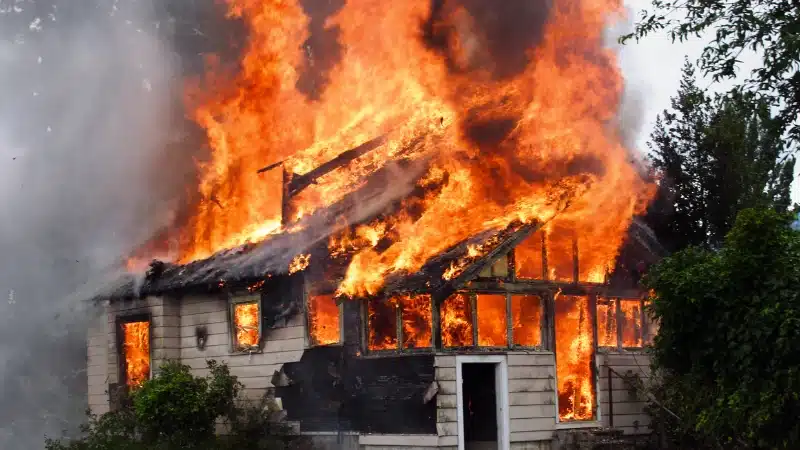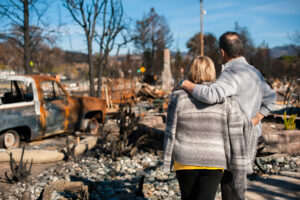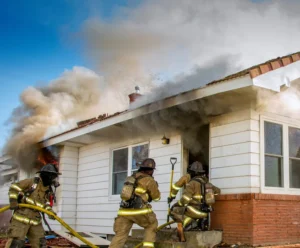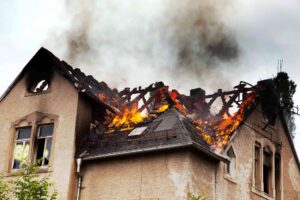Essentially, fire insurance is a type of property insurance that covers damage and loss due to fire. In 2024, with the deepening of urbanization and industrialization, the risk of fire accidents will still be enormous. Fire insurance can mitigate the financial impact of such disasters and give homeowners peace of mind.
Types of fire insurance
There are two main types of fire insurance: standard fire insurance and comprehensive fire insurance. Standard policies typically cover damage from fire, lightning and other specified perils. Comprehensive policies provide broader coverage, including protection against additional risks such as theft and vandalism.
Coverage through fire insurance
Fire insurance policies typically cover a variety of aspects, including property damage, additional living expenses, personal property, and liability. Property damage insurance covers the costs of repairing or rebuilding a building damaged by fire. Supplemental living insurance helps cover temporary housing and living expenses while the property is being repaired. Personal property insurance covers property damaged or destroyed by fire, while liability insurance provides protection against legal claims arising from fire-related incidents.
Factors that influence fire insurance premiums
Several factors can affect fire insurance premiums, including the property’s location, value, construction materials and fire safety measures implemented. Properties located in high-risk areas or built with flammable materials may have higher premiums due to increased risk factors.
Claims procedure for fire insurance
In the event of fire, the policyholder must immediately report the incident to the insurance company. The insurance company assesses the loss and initiates the claims process, including determining coverage and reimbursing the policyholder accordingly.
Latest trends in fire insurance
Technological advances have revolutionized the fire insurance industry, with the integration of drones, satellite imagery and artificial intelligence increasing the possibilities for risk assessment. Furthermore, the escalating impacts of climate change are prompting insurance companies to reassess risk factors and adjust their underwriting strategies accordingly.
The importance of regularly reviewing your fire insurance policy
Homeowners should review their fire insurance policies regularly to ensure adequate coverage and to account for any changes in property values or risk factors. The policy may need to be updated to accommodate renovations, expansions, or changes in occupancy.
Tips for choosing the right fire insurance
When choosing fire insurance, it is important to carefully assess the needs of your property and compare quotes from multiple insurance companies. Coverage limitations, deductibles, and additional recommendations should be taken into account to tailor the policy to specific requirements.
Common exclusions in fire insurance policies
Although fire insurance provides extensive coverage, certain exceptions apply, such as damage caused by intentional fire, acts of war or negligence. Policyholders should familiarize themselves with these exclusions to avoid potential coverage gaps.
Learn more about fire insurance in different regions
Fire insurance requirements and coverage options may vary per region due to differences in regulations, risk profiles and climatic conditions. Homeowners should be aware of regional differences when purchasing fire insurance.
case study
Examining real-life examples of fire insurance claims can provide insight into the claims process, coverage limits, and the importance of adequate insurance protection.
regulatory compliance
Property owners must comply with legal requirements regarding fire insurance, including mandatory coverage and documentation requirements. Compliance ensures legal protection and financial security in the event of fire.
Benefits of fire insurance
In addition to financial protection, fire insurance can provide homeowners with peace of mind, allowing them to focus on restoration work without incurring major financial losses.
The future of fire insurance
Looking ahead, the future of fire insurance w
Property owners are advised to limit the financial risks associated with fire losses.
Can I take out fire insurance for my rental property?
Yes, renters can purchase fire insurance to protect their personal property and rental property liability, while landlords typically purchase structural insurance.
What steps should I take in the event of a fire to ensure a smooth claims process?
Report the fire immediately to the insurance company, document the damage and fully cooperate with the damage assessment process to expedite claims settlement.
Does fire insurance cover wildfires?
Yes, fire insurance generally covers losses due to wildfires unless specifically excluded in the policy.
How often should I review my fire insurance policy?
It is recommended that you review your fire insurance policy annually or whenever significant changes occur to ensure adequate coverage.



